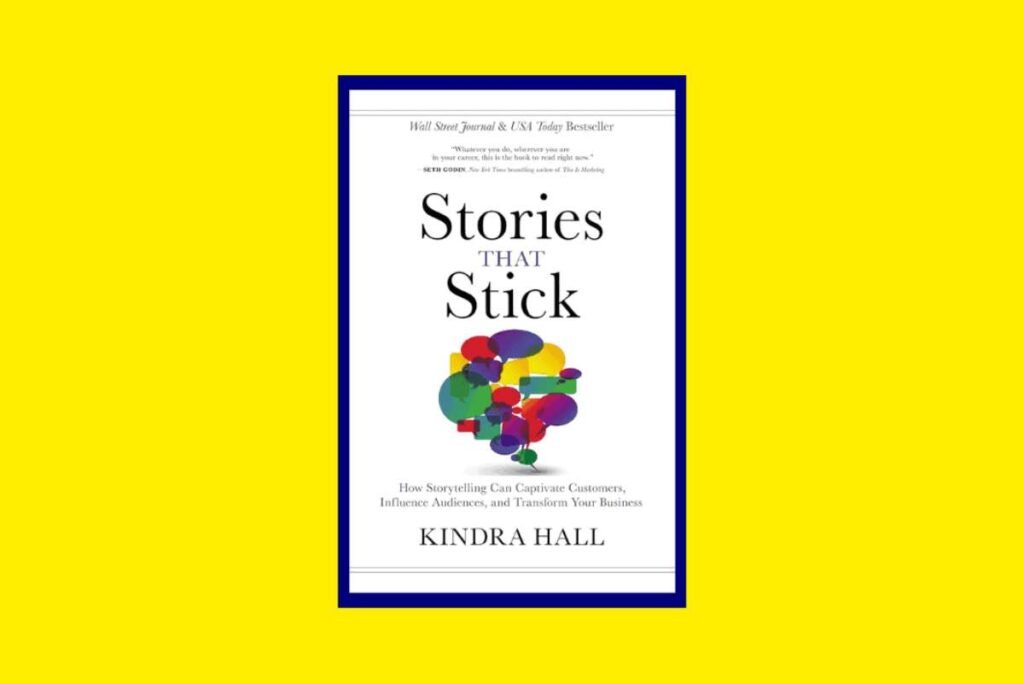In this modern era of business, Communication mediums have also changed along with time. It has become a prime source of getting insight and increasing engagement. These businesses focus on their audience and try to convey messages that stand out in comparison to their competitors. One of the most prominent tools for conveying those messages is storytelling. Storytelling books for business offer relevant insight into various factors such as communication, marketing, and leadership. In this article, we will explore some components that make storytelling books essential for business, what are the important takeaways from them, and how they will help grow and transform professionally.
The Importance of Storytelling in Business
Before jumping into the precise storytelling books for business, it’s necessary to understand why storytelling is vital in the business world. Human beings are certainly drawn to stories. They arouse emotions, create connections, and make information remarkable. In a business context, storytelling can:
- Build Brand Identity: Companies that share their stories create a more relatable brand image. This connection fosters customer loyalty and trust.
- Engage Employees: Leaders who use storytelling can inspire their teams and promote a shared vision, enhancing workplace culture and employee engagement.
- Enhance Marketing Strategies: Storytelling in marketing helps businesses connect with their target audience on a deeper level, making campaigns more effective.
- Facilitate Learning: Educational initiatives that incorporate storytelling can lead to better retention of information among employees and clients.
With these benefits in mind, let’s explore some of the top storytelling books for business that can guide you in mastering this art.
Top Storytelling Books for Business
1. “Building a StoryBrand” by Donald Miller

This storytelling book for business is a must-read for marketers and entrepreneurs looking to enhance their brand communication.
In “Building a StoryBrand,” Donald Miller introduces the StoryBrand Framework, which helps businesses clarify their messaging. The book emphasizes that customers are the heroes of the story, and brands should position themselves as guides that help these heroes succeed. Key insights include:
- Creating a Clear Message: Miller outlines how to simplify your brand message to make it more compelling and relatable.
- Identifying Customer Needs: The book encourages businesses to understand their customers’ problems and position their products or services as solutions.
2. “Made to Stick” by Chip Heath and Dan Heath

As one of the leading storytelling books for business, it’s a powerful tool for anyone looking to improve their communication skills.
“Made to Stick” explores the principles of effective communication. The Heath brothers outline why some ideas thrive while others fade away, providing a framework for crafting messages that resonate. Their principles—Simple, Unexpected, Concrete, Credible, Emotional, and Stories (SUCCES)—highlight the power of storytelling.
- Using Stories for Retention: The authors argue that stories help people remember information better than facts alone. This insight is vital for anyone looking to make an impact through their messaging.
- Crafting Engaging Narratives: The book provides practical advice on how to structure stories to enhance their effectiveness in business communication.
3. “The Story Factor” by Annette Simmons

This storytelling book for business provides practical strategies for leaders and marketers to harness the power of personal narratives.
Annette Simmons’ “The Story Factor” delves into the psychology of storytelling and its influence on human behavior. Simmons argues that storytelling is a skill that can be developed and leveraged for success in various business contexts.
- Understanding Your Audience: The book emphasizes the importance of knowing your audience and tailoring your stories to their experiences and emotions.
- Utilizing Personal Stories: Simmons discusses how personal anecdotes can create connections and enhance credibility.
4. “The Hero with a Thousand Faces” by Joseph Campbell

This storytelling book for business is invaluable for marketers and leaders seeking to understand the underlying structures of powerful narratives.
While not strictly a business book, Joseph Campbell’s “The Hero with a Thousand Faces” offers profound insights into the archetypal narratives that resonate with audiences. Campbell’s concept of the Hero’s Journey serves as a framework that can be applied in various business contexts, from marketing campaigns to brand storytelling.
- Understanding Archetypes: Knowing the common narrative structures can help businesses create stories that resonate with their audiences.
- Crafting Compelling Narratives: The Hero’s Journey provides a roadmap for structuring stories that engage and inspire.
5. “Stories That Stick” by Kindra Hall

As one of the most reachable storytelling books for business, it’s perfect for anyone looking to integrate storytelling into their communication style.
In “Stories That Stick,” Kindra Hall emphasizes that stories are essential tools for effective communication, whether in sales pitches, presentations, or team meetings. Hall breaks down the components of compelling stories and explains how to use them effectively in a business setting.
- The Four Essential Stories: Hall identifies four types of stories every business professional should master: the personal story, the customer story, the vision story, and the connection story.
- Practical Applications: The book provides actionable strategies for incorporating storytelling into everyday business interactions.
How to Implement Insights from Storytelling Books for Business?
After exploring these storytelling books for business, you may wonder how to apply their insights effectively. Here are some actionable steps:
- Identify Your Brand Story: Reflect on your company’s journey, values, and mission. Craft a narrative that encapsulates these elements to connect with your audience emotionally.
- Use Customer Testimonials: Incorporate customer stories into your marketing efforts. Showcase how your product or service has transformed lives or solved problems.
- Practice Storytelling Techniques: Engage your team in storytelling exercises. Encourage them to share personal experiences that relate to your business objectives.
- Refine Your Messaging: Regularly revisit and refine your messaging based on the principles learned from these storytelling books for business. Ensure that it remains clear, relatable, and engaging.
- Measure Impact: Track how storytelling impacts your business outcomes, such as customer engagement and sales conversion rates. Use these metrics to continually improve your narrative strategies.
Conclusion
Storytelling is an important factor that levels up your communication skills in the business world, enhances your brand image, and helps develop a better understanding of your target audience. The storytelling books for business mentioned in the above article provide great insight and strategies to improve your business. By implementing them in your business practices, you can develop your business skills and foster deeper connections with both employees and customers that in turn help you make your business successful.
As you explore the world of storytelling, remember that every great business has a story worth telling—yours could be the next one to inspire and engage!










